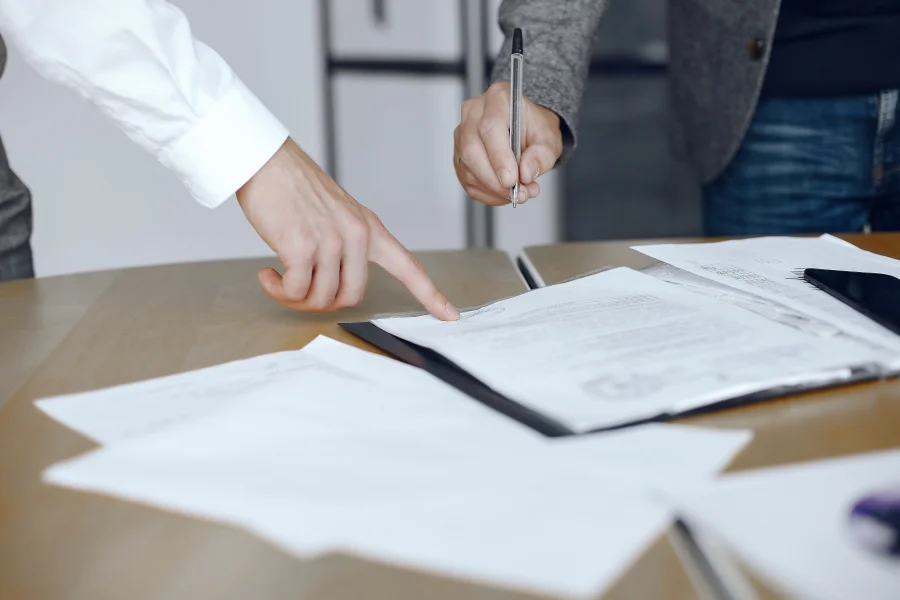
Bitcoin in your business and taxation: what you need to know

How should Bitcoin be taxed if you decide to accept it at your store and then either keep it or sell it on an exchange? And how should this be reflected in your tax declaration?
Bitcoin has already established itself in society as a cryptocurrency, to the point where some major retailers are now taking it as payment. You can pay with it (besides the obligatory Parallel Polis in Prague) at Alza, nanoSpace (a nanofiber manufacturer), or even at the Najbrt graphic studio. However, it is primarily many small enterprises that accept payments in Bitcoin (BTC). Most of these are concentrated around Prague, but as you can see on the constantly updated map at Coinmap.org, they are not only located there.
Starting to accept Bitcoin in your business is simple. To receive the bitcoin, you’ll need a smartphone or tablet and an internet wallet (for added security, consider obtaining a hardware wallet where you can sometimes deposit BTC).
Then, it is essential to have enough cryptocurrency enthusiasts around who do not view Bitcoin merely as an investment but adhere to the original idea (i.e., an alternative currency) and are willing to part with a few satoshis (the smallest unit of BTC), say, for a coffee.
Bitcoin and taxes
The Czech tax legislation does not yet contain specific rules for cryptocurrencies, so general provisions must be relied upon. According to the tax service, cryptocurrencies are legally interchangeable intangible assets and cannot be classified as electronic money or investment instruments for tax purposes. In accounting, they are recorded as “special kind” assets.
When considering cryptocurrencies from the perspective of a small merchant (for example, a café owner) who also wants to accept payments in bitcoins, it is essential to distinguish between two situations.
Accepting Bitcoins in a Café
In the initial stage, the café owner accepts payment in bitcoins. This transaction is considered an exchange of non-monetary benefits between the buyer and seller. The café owner earns taxable income, which must be assessed because it is within the tax base.

The amount of income is determined by the current Bitcoin exchange rate on the day of the coffee sale. According to the Ministry of Finance, bitcoins acquired or held by an entrepreneur keeping accounts on a double-entry system are accounted for as “special kind” assets (‚svého druhu’) and valued in Czech crowns at the acquisition price (here, by the exchange rate on the day of acquisition as payment for the coffee sale), as reported by Měšec.cz spokesperson for the Main Financial Administration, Lukáš Gerertus.
Dominik Gercina, a tax consultant assistant at SMPL who also handles cryptocurrency in his tax consultations, stated that the scenario differs for entrepreneurs who keep accounting and tax records. According to him, when the revenue is assessed at the current market price of the gathered cryptocurrency, in tax accounting, the collected cryptocurrency is treated as a share purchase, resulting in an expense.
For example, selling coffee for 50 crowns in BTC results in an income of 50 crowns and an expense of 50 crowns. Thus, in tax accounting, taxes only arise when the cryptocurrency is sold. Tax regulations in accounting are based on the Accounting Act, which means that coffee sales generate income rather than expenses, according to Gercina.
What the café owner intends to do with the bitcoin thereafter depends on their preference. They may keep it as an investment or sell it gradually or all at once (we do not examine scenarios where it will be used to purchase things for the café because Bitcoin is not yet extensively established in the Czech Republic, but Bitcoin should still be regarded as an inventory).
Bitcoin as an investment
When a café owner accepts Bitcoin and accumulates it as an investment, no income arises during the period of ownership since the acquired cryptocurrency is not revalued in the accounting system in line with changes in its exchange rate during the ownership period.
At the time when the entrepreneur receives bitcoins as payment for the sale of coffee, the value of the received bitcoins will be recognized as income from the sale of goods or services. In the tax declaration of an entrepreneur maintaining double-entry accounting, this will be reflected in the profit or loss, which forms the tax base (line 10 of the tax declaration). In the case of a non-accountant entrepreneur—an individual—this income will be part of the income and partial tax base from self-employment, that is, from the coffee business.
“If the entrepreneur intends only to hold the cryptocurrencies, then no tax event occurs. The tax event is the initial receipt of the cryptocurrency for services rendered”, adds Gercina.
Selling accumulated bitcoins
When a café owner decides to sell a portion or all of the accumulated cryptocurrency and receive fiat currency (Czech crown, dollar, or euro) in exchange, this will not be considered exchange activity or the sale of capital assets. As we’ve discussed, from a tax perspective, this is the sale of an intangible, movable asset.
Upon selling Bitcoin, an entrepreneur maintaining double-entry accounting recognizes the revenue from the Bitcoin sale as income (this is the sale of goods in kind), ceases recognition of Bitcoin, and writes off its valuation at the original cost. The resulting difference constitutes profit or loss.
The taxation of income from the sale of cryptocurrencies will be carried out according to general rules, and in the case of entrepreneurs’ accounting, according to the current accounting rules. Thus, revenues will be taxed, and expenses will be deductible, the expert explained, adding that any fees the café owner may pay to a cryptocurrency exchange related to the sale of Bitcoin will be considered expenses, which can generally be claimed as a tax deduction.
“When we sell cryptocurrency for fiat currency, we have to convert it into Czech crowns at the uniform or daily rate at the moment of the transaction,” clarified Gercina from SMPL.
For taxation purposes, the revenue from the sale of bitcoins by a café owner will be part of their profit or loss and will enter their tax base for the period in which they were sold. Profit from the exchange of bitcoins does not arise, as they are considered a “one-of-a-kind” commodity valued in Czech crowns, said Gerertus from the Main Financial Directorate, adding that for an individual whose bitcoin or other cryptocurrency is not included in business assets, income from occasional sales is considered other income, which is generally subject to taxation. The taxable expense in this case is the price of bitcoin at the time of its acquisition. If the bitcoin was acquired gratuitously, then the expense is considered to be the price determined in accordance with the Property Valuation Law on the date of acquisition. Expenses can be claimed only up to the amount of income.
Gercina added that each cryptocurrency transaction must be recorded at the current market rate. If a café owner frequently accepts payment for coffee in bitcoins and also often sells cryptocurrency, for example, on an exchange or through an online exchanger, manually tracking the market rate of bitcoin can be quite labor-intensive. Unfortunately, there is no standard or definitive rate for cryptocurrencies. However, specialized cryptocurrency software can determine the market price of cryptocurrencies with second-by-second precision.
Source:
How to get started with 360 WEDO?
Send us the form and our specialist will contact you shortly




